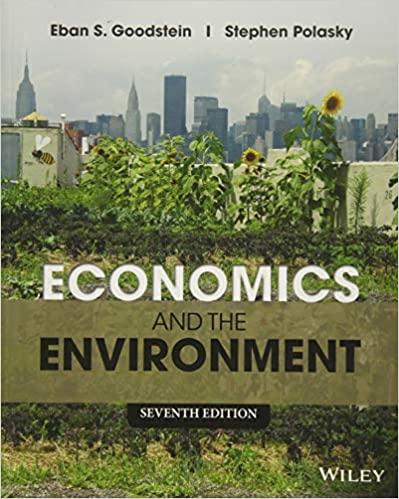For consulting job 3, suppose you are analyzing the use value of a public beach. Controlling for
Question:
For consulting job 3, suppose you are analyzing the use value of a public beach.
Controlling for income, age, preferences, and everything else that might affect beach visits, you have gathered the following data:

1. If there are 1,000 people in each of the three travel-cost categories $0, $20, and $39, what is the approximate total consumer surplus arising from day trips to this beach?
2. Your boss needs help evaluating a decision to close this particular beach in order to preserve habitat for an endangered seabird, called a plover, that inhabits only this stretch of beach. From a CV study, you know that U.S.
citizens are WTP $1,500,000/yr to preserve the plover. Based on your analysis and your understanding of the usefulness and limitations of these benefit analyses, do you conclude that protecting the plover is efficient? Argue both sides. (This answer requires at least four paragraphs!)
3. Under the Endangered Species Act, could your analysis have any legal bearing on the decision to protect the plover?
Step by Step Answer:

Economics And The Environment
ISBN: 9781118539729
7th Edition
Authors: Eban S. Goodstein, Stephen Polasky





